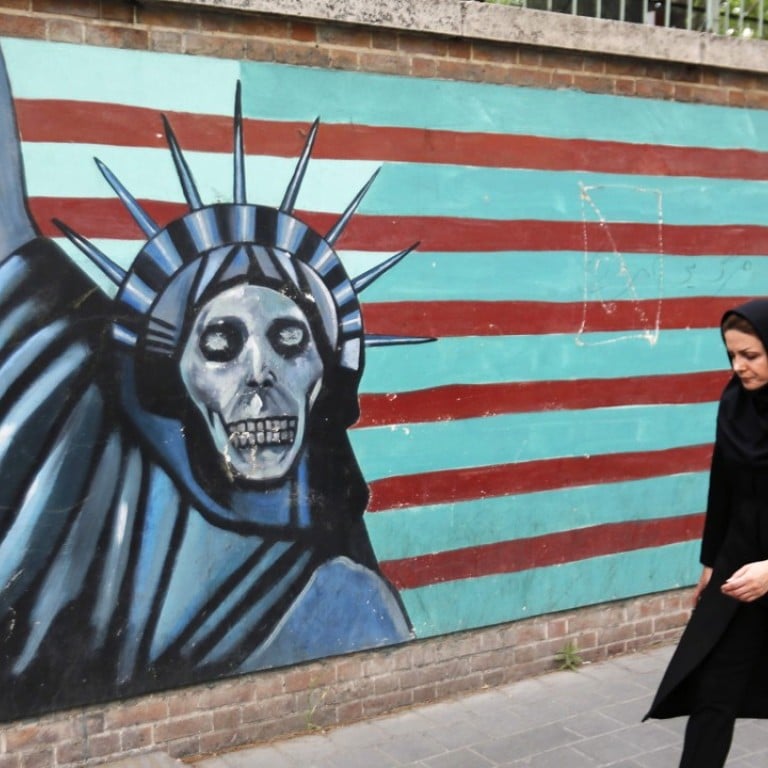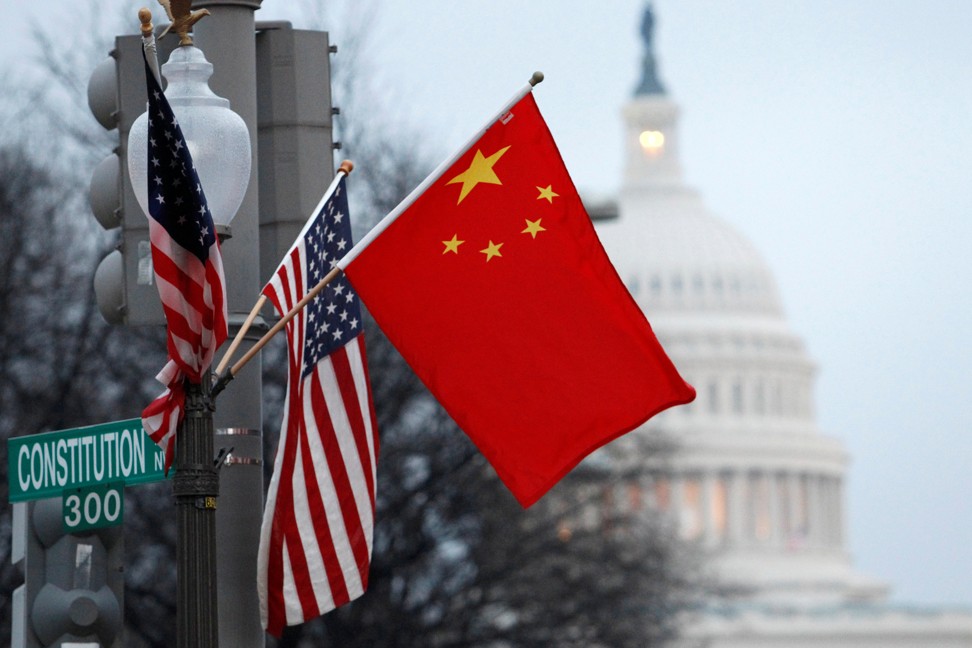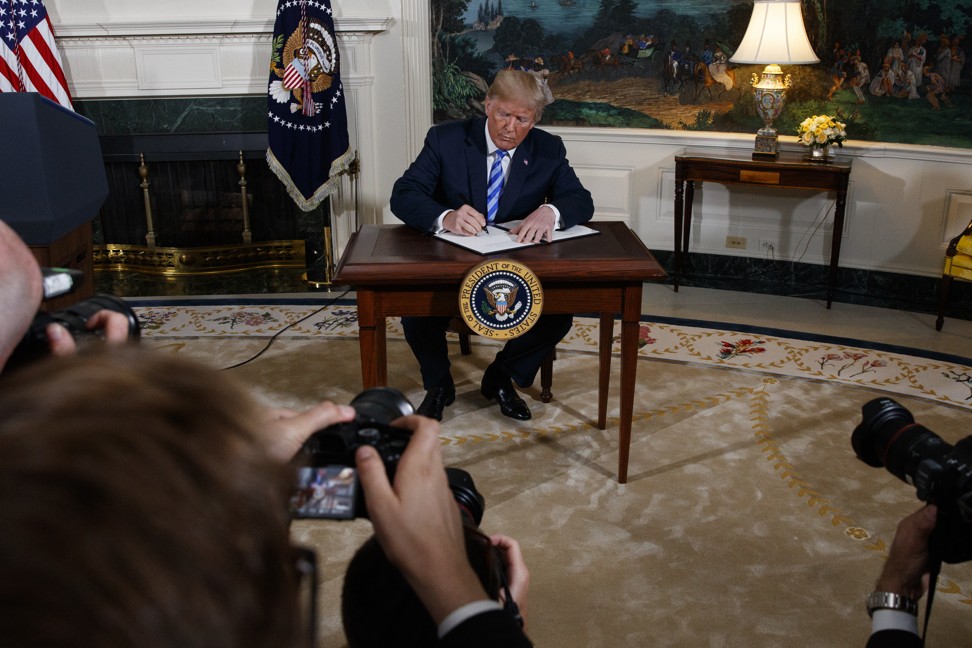
China backs Iran nuclear deal as United States walks away, but could it be a costly decision?
Beijing says it will ‘protect and execute the agreement’, but reintroduction of US sanctions could hit Chinese firms, analysts suggest
China said on Wednesday it remains committed to the Iran nuclear deal despite the United States’ decision to withdraw from it, a move analysts said would bring Tehran and Beijing closer together but could harm China’s economic interests.
Foreign ministry spokesman Geng Shuang said China would “maintain communication with all parties and continue to protect and execute the agreement fully”.
His comments came after the announcement by US President Donald Trump to abandon the Joint Comprehensive Plan of Action (JCPOA) – signed in 2015 under the Barack Obama administration – was roundly criticised by the deal’s other signatories, namely France, Germany, the United Kingdom, Russia, Iran and the European Union.
Hans Dietmar Schweisgut, the EU ambassador to Beijing, said on Wednesday that the nuclear deal would not fall apart despite the United States’ withdrawal.
The EU believed “that this is an agreement which belongs to the international community”, he said. “This is not an agreement that will fall apart if you just walk away.”
Trump said he wanted a “better deal” from the Middle Eastern nation that would see it accepting permanent limits on its uranium enrichment and missile development programmes.
Meanwhile, the US Treasury said it would reimpose sanctions on Iran – targeting, among other things, aircraft exports to the country, its metals trade and its attempts to acquire US dollars – after the expiration of 90- and 180-day wind-down periods.
Li Weijian, an expert in Middle East affairs at the Shanghai Institute of International Studies, said that while the departure of the US from the JCPOA might lead to closer relations between Iran and China, Beijing may lose out in economic terms.
“Trump’s move will undoubtedly push Iran closer to China and Russia in the political sphere, but in practical terms this won’t do China any good,” he said.
“If everyone remained committed to the original deal, Iran would continue to move towards a more open economy, which would give China greater investment opportunities. Now, the US is not only scrapping its deals with Iran but also putting pressure on countries and companies that trade with it, pushing the country further back into isolation.”
Li cited the case of Chinese telecom equipment maker ZTE Corp. In April, Washington imposed a seven-year ban on American companies selling components and software to ZTE after ruling it had breached US sanctions on Iran.
Jin Canrong, from the School of International Studies at Renmin University in Beijing, also voiced concern, saying that any move by the US to restrict Iran’s oil trade, could be costly for China.
“[China] buys a lot of oil from Iran, so this would have a negative impact,” he said.
According to figures from Iran’s Trade Promotion Organisation, oil commodities accounted for more than 80 per cent of the US$37 billion worth of trade between China and Iran in 2017.
Tytti Erästö, a researcher on nuclear disarmament and non-proliferation issues at the Stockholm International Peace Research Institute, said, however, that even if Washington did reintroduce sanctions on Iran, China could circumvent them as it was “less dependent on the US economically”.
“Even if Europeans have the political will to oppose the reimposition of US extraterritorial sanctions, their companies and banks are effectively deterred [by them], due to their extensive ties with the United States,” she said.
Nonetheless, if China and the EU jointly condemned any US sanctions, and found legal and economic ways to oppose them, it would send a clear political message to Washington, Erästö said.
“China could help the EU to circumvent the US sanctions by offering alternative financial networks for conducting business with Iran,” she said.
Additional reporting by Keegan Elmer and Catherine Wong



